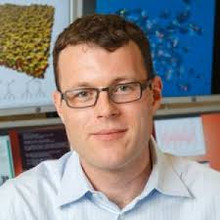Applying deep learning and artificial intelligence to problems in physics - Isaac Tamblyn (NRC)

Applying deep learning and artificial intelligence to problems in physics Isaac TamblynComputational Laboratory for Energy And NanoscienceNational Research Council of Canada
Abstract: Within the past decade, the fields of artificial intelligence, computer vision, and natural language processing have advanced at unprecedented rates. Computerized identification and classification of images, video, audio, and written text have all improved to the extent they are now part of everyday technologies such as digital voice assistants (e.g. Siri), automated banking machines (reading handwritten cheques), and driving assist vehicles (automatic lane change, self-parking, and anticipative aking). Many of the major recent eakthroughs have been enabled by a single class of approaches: deep neural networks (DNN). DNN are an extension of work on artificial neural networks initiated during the 1970’s-1980’s. Deep networks make use of many layers of perceptrons with specialized connectivities and functions, where layers within the model are able to automatically learn important features present within a dataset.
Deep learning represents a new frontier for computational physics. I will discuss our recent work with DNN as applied to simple classical, quantum mechanical, and atomistic problems. Results for applying generative adversarial networks and reinforcement learning to the inverse design and control problem will also be discussed.
Bio: Isaac Tamblyn is a Research Officer at the National Research Council of Canada. His group (http://clean.energyscience.ca) applies machine learning and artificial intelligence to problems in computational nanoscience. He holds Adjunct status in the Physics Departments of uOttawa and UOIT. He completed his PhD in Physics at Dalhousie, and held postdoctoral fellowships at Berkeley Lab and Lawrence Livermore National Laboratory.
For further information, you may consult the web page: http://clean.energyscience.ca
Cette conférence est présentée par le RQMP Versant Nord du Département de physique de l'Université de Montréal et de Génie physique de la Polytechnique.
Emplacement : 5155, chemin de la rampe amphitheatre (salle 1035) Montréal H3T 2B2 QC Canada